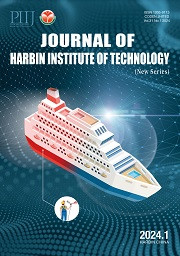| Related citation: | Huandi Huang,Jie Ding,Xianshu Liu,Guojun Xie,Dihui Song.Effect of Co-substrate on Degradation of Benzothiazole in MEC[J].Journal of Harbin Institute Of Technology(New Series),2016,23(5):62-68.DOI:10.11916/j.issn.1005-9113.2016.05.009. |
|
| Author Name | Affiliation | | Huandi Huang | State Key Laboratory of Urban Water Resource and Environment, Harbin Institute of Technology, Harbin 150090, China | | Jie Ding | State Key Laboratory of Urban Water Resource and Environment, Harbin Institute of Technology, Harbin 150090, China | | Xianshu Liu | State Key Laboratory of Urban Water Resource and Environment, Harbin Institute of Technology, Harbin 150090, China | | Guojun Xie | Advanced Water Management Centre,The University of Queensland,Brisbane 4072,Australia | | Dihui Song | State Key Laboratory of Urban Water Resource and Environment, Harbin Institute of Technology, Harbin 150090, China |
|
| Abstract: |
| Due to its persistence and bio-toxicity, benzothiazole (BTH) cannot be biodegraded efficiently. Recent work has shown that removal rates of biorefractory organics can be enhanced by the addition of co-substrates. In this work, ethanol, acetate, propionate and butyrate were added as co-substrates in order to promote the degradation of BTH in microbial electrolysis cell (MEC). By probing the changes in degradation rates of BTH in the presence of different co-substrates, it was observed that all the four co-substrates can enhance the BTH degradation in MEC, both the efficiency (EBTH) and the rate (RBTH). It was also found that acetate is more effective than others, which made the degradation efficiency of BTH up to 90% with acetate-C at 350 mg/L (measuring by the carbon content of co-substrate, the same below),within 6 h and the degradation rate of BTH arrived 0.001 2/(mg·h). The microbacteria in MEC have also been influenced by different co-substrates. This metabolism of the co-substrates enables the microbacteria on anode to generate ATP and thus grow to ensure the microbacteria activity. Therefore, this work showed that the addition of co-substrates such as acetate can be a novel and efficient approach for improving the elimination of BTH from wastewaters by MEC system. |
| Key words: MEC benzothiazole co-substrate acetate |
| DOI:10.11916/j.issn.1005-9113.2016.05.009 |
| Clc Number:X592 |
| Fund: |






